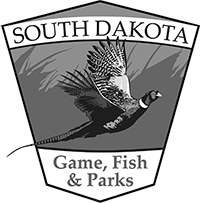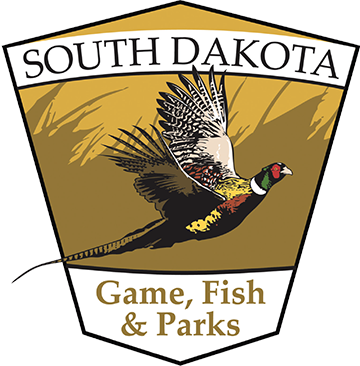Mentored, Youth and Apprentice
- For mentored hunting, the mentee is defined as the youth hunting and the mentor is defined as the adult mentoring the youth hunter.
- Mentored hunting is available for both residents and nonresidents.
- Hunter safety is required for individuals ages 12-15 who participate in youth hunting. There is no hunter safety requirement for mentees for mentored hunting, however, the mentor must have completed a hunter safety course. Replace your HuntSAFE or BowHunter ID card or email your full name, mailing address and date of birth for assistance.
- Mentored youth are limited to one license per season and are not eligible to obtain/apply for additional licenses in other respective firearm or archery seasons.
- Please refer to the Hunting Handbook for all regulations.
- Safety First- Treat every firearm as if it is loaded, practice muzzle control, and be absolutely sure of the target. Safety is the primary concern when youth are involved in hunting. Practice shooting skills before the hunt to ease fears.
- Have Fun- Be Positive. Success is the hunt, not the kill. Involve youth in nature-oriented activities, obtaining landowner permission, studying wildlife behavior within their habitat, and other important matters that comprise a good experience.
- Give All Your Attention to the Youth- Mentoring is about the youth, not about you.
- Remember, They are Young- Physical stamina and mental maturity is much different in youth than adults. Consider short hunts and talk beforehand about field dressing animals.
- Patience- Youth don't always get it right the first time. Practice CPR: Compliment, Positive Correction, Review.
- Listen and Talk- Listen and address any concerns the youth may have before the hunt. Talk to the youth about their connection to nature and respect for habitat and wildlife.
- Use Appropriate Equipment- Hunting gear is not one size fits all. Use the appropriate size of equipment.
- No Pressure- Sometimes the best shot is no shot. The only good shot is one the youth is comfortable with.
- Practice First- This reduces wounding loss and builds confidence in the beginning hunter.
- Use Good Judgement- If the youth is not ready for hunting, having the youth observe a hunt is a great option.
Mentored Big Game
- Available for both residents and nonresidents.
- The mentee is NOT required to be hunter safety certified.
- There is no minimum age for the mentee, but they must not be older than 15 at the time of hunting.
- The mentee must be accompanied by an unarmed parent, guardian, or designated mentor who may be a resident or nonresident of South Dakota AND have taken the hunter safety course. The mentor is required to have their HuntSAFE card on them while hunting and must be within immediate control (arm’s length) and supervision of the mentee.
Youth Deer
- A parent/guardian must accompany the youth when obtaining an Youth Deer License.
- The youth deer license (limited to one) is for an “any antlerless deer” license that is valid for Unit YOD-03 or an “antlerless whitetail deer” license that is valid for Unit YOD-13.
- All youth deer licensees under the age of 16 must be accompanied (unaided visual and vocal contact) by a parent, guardian or responsible adult (at least 18 years old).
- Adult accompanying the youth deer licensee is not required to possess hunter education certification.
- Youth deer licensees are eligible for other deer licenses except the mentored deer license.
- Adult (at least 18 years old) must be unarmed* unless the adult has a Big Game License valid for the same geographic area and time of year as the youth deer licensee.
- Adult can accompany multiple youth deer hunters.
Apprentice Deer
- Residents who are 18 years of age or older by June 30 can receive an apprentice license if they have not held a deer license during the previous 10 years.
- The apprentice deer license (limited to one) is for an “any antlerless deer” license that is valid for Unit APD-03 or an “antlerless whitetail deer” license that is valid for Unit APD-13.
- Apprentice deer hunters are not required to be accompanied by an adult while hunting
Mentored Small Game | Youth Small Game
- Available for both residents and nonresidents.
- The mentee is NOT required to be hunter safety certified.
- There is no minimum age for the mentee, but they must not be older than 15 years of age at the time of hunting.
- The mentee must be accompanied by an unarmed parent, guardian, or designated mentor who is at least 18 years old. The mentor must be hunter safety certified. The mentor is required to have their HuntSAFE card on them while hunting and must be within immediate control (arm’s length) and supervision of the mentee.
- Resident youth pheasant season participants must be 12 years of age by December 31 and younger than 18.
- Resident youth who are 12 years of age as of December 31 and younger than 16 years of age must purchase a youth small game license AND have hunter safety certification. Individuals within the ages of 16-17 must purchase a small game license and are not required to have hunter safety certification.
- Nonresident youth who are 12 years of age as of December 31 and younger than the age of 16 must purchase the nonresident youth small game license AND have hunter safety certification and. Individuals with the ages of 16-17 must purchase a nonresident youth small game license and are not required to have hunter safety certification. Youth Small game licenses are valid for 2 5-day periods.
Mentored Waterfowl | Youth Waterfowl
For the mentee and mentor to be eligible for mentored waterfowl hunting:
- There is no minimum age for the mentee, but they must not be older than 15 years of age at the time of hunting.
- Mentees are NOT required to be hunter safety certified.
- The mentee must be accompanied by an unarmed parent, guardian, or designated mentor who is at least 18 years old. The mentor is required to have their HuntSAFE card and must be within immediate control (arm’s length) and supervision of the mentee.
- Mentees hunters can hunt during the youth waterfowl season.
For your child to be eligible for youth waterfowl hunting:
- The youth waterfowl season is for individuals who will be 12 years of age as of December 31 AND who have not reached the age of 18 by the first day of the season.
- Resident youth who are 12 years of age as of December 31 and younger than 16 years of age must purchase a youth small game license AND have hunter safety certification. Individuals with the ages of 16-17 must purchase a small game license and are not required to have hunter safety certification.
- Nonresident youth who are 12 years of age as of December 31 and younger than the age of 16 must purchase a nonresident waterfowl license with valid dates or a nonresident youth waterfowl license AND have hunter safety certification. Individuals with the ages of 16-17 must purchase a nonresident waterfowl license with valid dates or a nonresident youth waterfowl license and are not required to have hunter safety certification.
- An adult (18 or older) must accompany youth. The adult may not hunt ducks but may participate in other open seasons, including the Canada Goose Season.
- All youth waterfowl hunters must have a state migratory bird certification permit.
- All youth waterfowl hunters ages 16 and older must have a federal waterfowl stamp.

